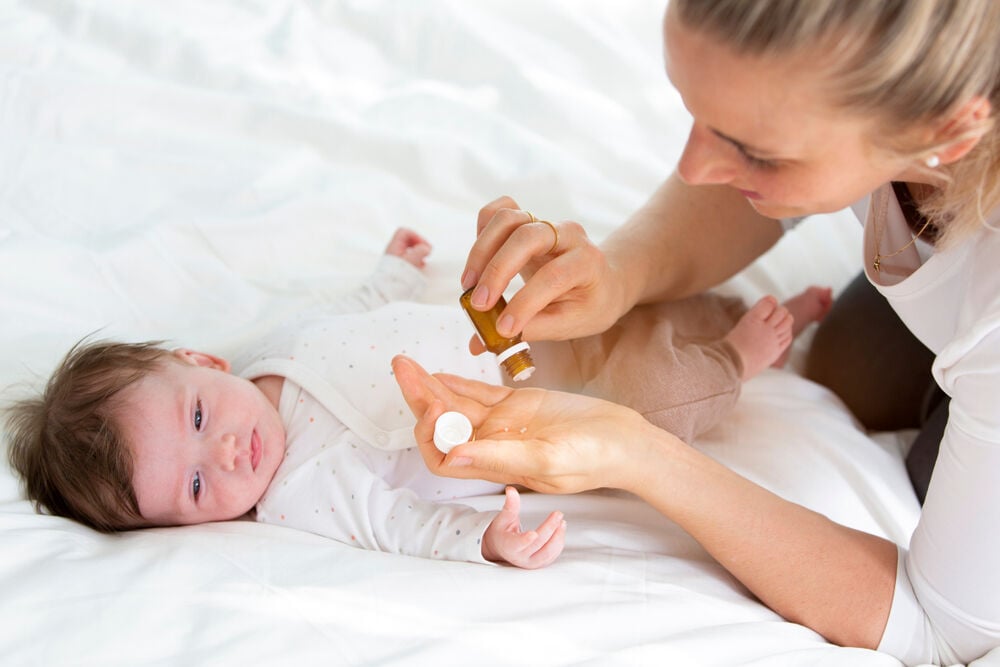-
Tracking cycle
-
Getting pregnant
-
Pregnancy
-
Help Center
-
Flo for Partners
-
Anonymous Mode
-
Flo app reviews
-
Flo Premium New
-
Secret Chats New
-
Symptom Checker New
-
Your cycle
-
Health 360°
-
Getting pregnant
-
Pregnancy
-
Being a mom
-
LGBTQ+
-
Quizzes
-
Ovulation calculator
-
hCG calculator
-
Pregnancy test calculator
-
Menstrual cycle calculator
-
Period calculator
-
Implantation calculator
-
Pregnancy weeks to months calculator
-
Pregnancy due date calculator
-
IVF and FET due date calculator
-
Due date calculator by ultrasound
-
Medical Affairs
-
Science & Research
-
Pass It On Project New
-
Privacy Portal
-
Press Center
-
Flo Accuracy
-
Careers
-
Contact Us
Teething Fever: How Do You Know Your Baby Has It?


Every piece of content at Flo Health adheres to the highest editorial standards for language, style, and medical accuracy. To learn what we do to deliver the best health and lifestyle insights to you, check out our content review principles.
Does teething cause fever?
The teething stage on new parents because of symptoms like gagging, drooling, night wakings, teething rash, and teething fever. Although teething can cause a slight increase in your baby’s body temperature, it's not high enough to be considered a serious fever.
As long as your baby's temperature is below 101 degrees Fahrenheit while teething, there’s probably no serious problem. But if the temperature goes higher than that and you notice other symptoms of illness, call your pediatrician right away.
When the process of teething begins, it can be quite uncomfortable for your baby. Primary teeth can start appearing in infants as early as 3 months and as late as 12–14 months. As the teeth break through the baby’s gums, they may cause some soreness and swelling just before the tooth erupts.
It’s important to educate yourself on the teething process so you know what to expect as your baby’s first teeth start to emerge. The symptoms usually appear 3–5 days before the primary teeth become visible.
Here are some common teething signs you should expect to see:
- Increased biting
- Loss of appetite
- Increased drooling
- Teething rash
- Increased sucking
- Ear pulling
- Difficulties sleeping
- Irritability
- Teething fever
Keep in mind that teething isn’t a competition; your baby’s teeth will start growing in their own time. So if you don’t see the signs as soon as you expected, don’t be worried.
Fever from teething: symptoms
Teething happens about the same time that an infant is susceptible to illness. They’re prone to getting sick in this period because the immune defenses that they acquired while they were in the womb begin to wear off. For that reason, it can be tricky to tell if the discomfort your baby is experiencing is due to teething or illness.
If you suspect that your baby may be showing symptoms for reasons other than fever from teething, contact your pediatrician immediately.
Here are some of the main symptoms of teething.
Your baby has a slightly elevated temperature. Teething is often associated with a mild teething fever. Research has shown a strong correlation between the day before a new tooth appears and a slight increase in an infant’s body temperature. Only in rare cases is this increase in temperature high enough to be cause for alarm.
Your baby drools all the time. Recent research has shown that more than 50 percent of infants will drool excessively during this period. In some cases, the excess saliva may result in a rash appearing on the cheeks, chin, and neck.
Your baby gnaws on things. Irritation of the gum is even more common and affects a larger majority of infants. Your baby may respond to teething with chewing or biting on objects such as toys. You may also see the baby rubbing their cheek or gum. Gumming a cold teething ring, pacifier, or washcloth can make the baby feel better.
Your baby is less interested in solid food. If you had already started your baby on some solid foods, you might notice a decrease in the child’s appetite a few days before a new tooth appears. Provided you continue to breastfeed the baby or give them baby formula, you don’t need to be worried.
If your baby is so distressed that you cannot comfort them, that’s a sign that they may actually be sick. The discomfort or pain that a child experiences during teething should be mild. But if they cry too much and refuse to be consoled or go to sleep, call the doctor.
You should also call the doctor immediately if the baby has a high fever with a body temperature of 101 degrees Fahrenheit or higher.
How to treat fever from teething

Fever from teething can be easy to treat, but it’s important to be familiar with the methods that are most effective for your baby. To begin with, there are some mistakes you need to avoid.
Setting a low room temperature. While lowering the temperature of the room might seem like a good idea if your baby has a high teething temperatures, it’s best to keep it between 65–70 degrees Fahrenheit. Instead, give your baby a lukewarm bath to provide some relief. Alternatively, you can dip a cloth in lukewarm water and gently rub it on your baby’s body.
Giving the baby aspirin or other medication. It’s never advisable to give an infant medication meant for adults, even in small doses because it can cause Reye's syndrome — swelling of the brain with elevated ICP and swelling of the liver. A better alternative is to give the baby medication specifically designed to reduce fever in infants. Even then, make sure that you follow the instructions carefully and give the correct dosage.
Making the baby drink cold water. Again, logical as it may seem to offer cold water to a baby with teething fever, the effectiveness of this treatment is still a matter of much debate. Keeping the child hydrated is important, but it’s recommended to feed them breast milk or formula instead.
Putting gentle pressure on the gums is one way to provide your baby with some relief from teething symptoms. You can give them a rubber teething ring or massage the gums with a clean finger. Avoid using gels and teething tablets as many of them aren’t effective. Some contain compounds such as belladonna or benzocaine that may be harmful to a baby.
The teething process and teething fever can be stressful for both the infant and the parents. Following the advice in this article will help provide your child with relief. In case you suspect that your baby may be ill, call a doctor immediately.
Take a quiz
Find out what you can do with our Health Assistant


Hey, I'm Anique
I started using Flo app to track my period and ovulation because we wanted to have a baby.


The Flo app helped me learn about my body and spot ovulation signs during our conception journey.


I vividly
remember the day
that we switched
Flo into
Pregnancy Mode — it was
such a special
moment.
Real stories, real results
Learn how the Flo app became an amazing cheerleader for us on our conception journey.




